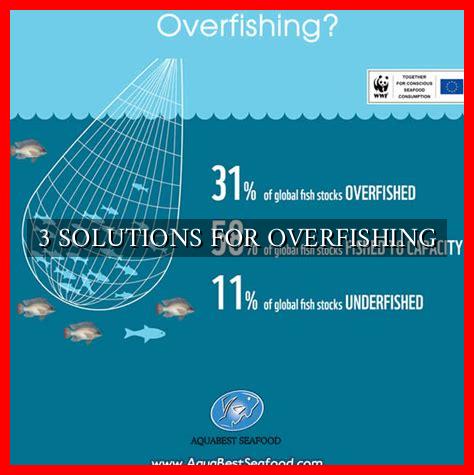-
Table of Contents
3 SOLUTIONS FOR OVERFISHING
Overfishing is a critical issue that threatens the health of our oceans and marine ecosystems. It occurs when fish stocks are depleted at a faster rate than they can replenish, leading to a decline in fish populations and disrupting the balance of marine life.
. In order to combat overfishing and ensure sustainable fishing practices, it is essential to implement effective solutions. Here are three key solutions that can help address the problem of overfishing:
1. Implementing Sustainable Fishing Practices
One of the most important solutions to overfishing is the implementation of sustainable fishing practices. This involves setting catch limits, regulating fishing gear, and establishing marine protected areas where fishing is restricted. By adopting sustainable fishing practices, we can ensure that fish stocks are able to replenish and thrive, allowing for long-term sustainability of our oceans.
- Setting catch limits: Governments and fisheries management organizations can set quotas on the amount of fish that can be caught in order to prevent overfishing.
- Regulating fishing gear: By regulating the types of fishing gear that can be used, we can reduce bycatch and minimize the impact of fishing on marine ecosystems.
- Establishing marine protected areas: Creating marine protected areas where fishing is prohibited can help to preserve critical habitats and allow fish populations to recover.
One example of successful implementation of sustainable fishing practices is the Marine Stewardship Council (MSC) certification program. The MSC certifies fisheries that meet strict sustainability standards, helping consumers make informed choices about the seafood they purchase.
2. Promoting Responsible Consumption
Another key solution to overfishing is promoting responsible consumption of seafood. Consumers can play a crucial role in reducing demand for overexploited fish species by choosing sustainably sourced seafood products. By supporting fisheries that follow sustainable practices, consumers can help drive positive change in the fishing industry.
- Look for eco-labels: When purchasing seafood, look for eco-labels such as the MSC label, which indicates that the product comes from a certified sustainable fishery.
- Diversify your seafood choices: By choosing a variety of seafood species, you can help reduce pressure on overexploited fish stocks and support more sustainable fishing practices.
- Support local fisheries: Buying seafood from local, small-scale fisheries can help promote sustainable fishing practices and support coastal communities.
One example of a successful initiative promoting responsible consumption is the Seafood Watch program by the Monterey Bay Aquarium, which provides consumers with information on sustainable seafood choices through their seafood guide.
3. Strengthening International Cooperation
Overfishing is a global issue that requires international cooperation to address effectively. By working together, countries can establish agreements and regulations to manage fish stocks sustainably and combat illegal, unreported, and unregulated (IUU) fishing practices. International cooperation is essential to ensure the long-term health of our oceans and marine ecosystems.
- Implementing international agreements: Countries can work together to establish agreements such as the United Nations Convention on the Law of the Sea (UNCLOS) to promote sustainable fisheries management.
- Combatting IUU fishing: By cracking down on illegal fishing activities, countries can help protect fish stocks and prevent overfishing.
- Sharing data and information: International cooperation can facilitate the sharing of scientific data and information on fish stocks, helping to inform sustainable fisheries management decisions.
One example of successful international cooperation in combating overfishing is the Agreement on Port State Measures, which aims to prevent IUU fishing by strengthening port controls and inspections of fishing vessels.
Summary
Overfishing is a pressing issue that requires urgent action to ensure the sustainability of our oceans. By implementing sustainable fishing practices, promoting responsible consumption, and strengthening international cooperation, we can work together to address the problem of overfishing and protect marine ecosystems for future generations. It is crucial for governments, fisheries management organizations, consumers, and international bodies to collaborate and take proactive steps to combat overfishing and promote sustainable fisheries management.
By adopting these solutions and making informed choices about the seafood we consume, we can help preserve the health and biodiversity of our oceans and ensure a sustainable future for marine life.





